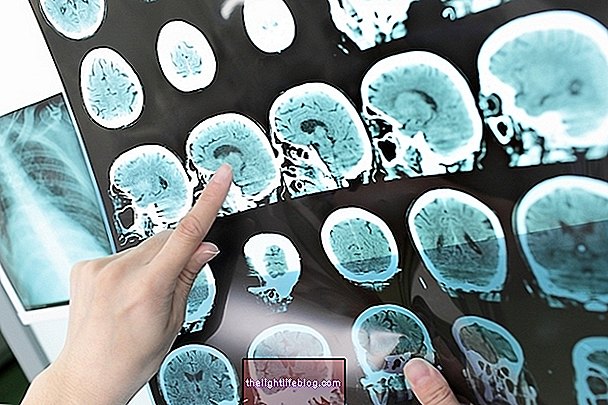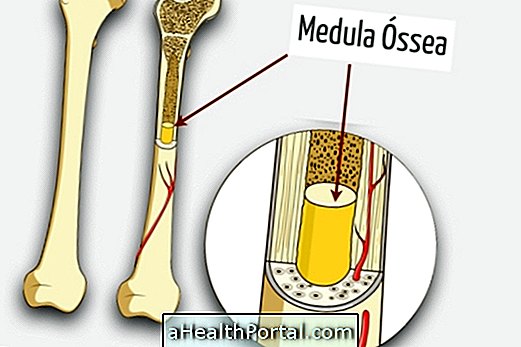The thyroid is a very important gland in the body, because it is responsible for producing two hormones, known as T3 and T4, that regulate the functioning of various mechanisms of the human body, from the heartbeat, to the movements of the intestine and even body temperature and menstrual cycle in women.
Thus, any change in the thyroid can easily affect the functioning of the entire body, causing various unpleasant symptoms such as constipation, hair loss, tiredness and difficulty concentrating, for example.
Another very common sign of thyroid problems are the easy variations in weight, which do not seem to be related to other factors, such as diet or physical activity level. Check out 7 common signs and symptoms of thyroid problems.

Why thyroid problems can get fat
Since the thyroid has the role of regulating the functioning of various organs in the body and even influencing body temperature, this gland is able to affect metabolism, which is the amount of energy that the body spends during the day to maintain itself. working. The rate of metabolism varies according to the change in the thyroid:
- Hyperthyroidism: metabolism may be increased;
- Hypothyroidism: metabolism is usually decreased.
People with an increased metabolism tend to lose weight because they spend more energy and calories during the day, whereas people with a decreased metabolism tend to gain weight more easily.
Thus, not all thyroid problems put on weight, and this is more frequent when the person suffers from some condition that causes hypothyroidism. Still, people who are undergoing treatment for hyperthyroidism may also suffer from some weight gain, as their metabolism will be slowed down by the treatment.
How to identify hypothyroidism
In addition to causing weight gain, hypothyroidism also causes other symptoms that may lead a person to suspect this thyroid change, such as frequent headache, easy tiredness, difficulty concentrating, hair loss and fragile nails. See more about hypothyroidism, its symptoms and diagnosis.
However, the diagnosis of hypothyroidism can only be made through blood tests that measure the concentrations of the hormones produced by the thyroid, T3 and T4, as well as the hormone TSH, which is produced in the brain and which is responsible for stimulating the functioning of the thyroid. People with hypothyroidism usually have T3 and T4 values below normal, while the TSH value is increased.
What to do to prevent weight gain
The best way to combat weight gain due to changes in the thyroid is to identify the problem and initiate the appropriate treatment, as this will make it possible to balance the functioning of the thyroid and the entire body metabolism.
However, decreasing the amount of calories ingested in the diet, as well as increasing energy expenditure through daily physical exercise are also essential to help maintain body weight. In any case, these guidelines should always be given by the doctor who is treating the thyroid problem.
Check out some tips from our nutritionist on what food should look like for thyroid problems:

Was this information helpful?
Yes No
Your opinion is important! Write here how we can improve our text:
Any questions? Click here to be answered.
Email in which you want to receive a reply:
Check the confirmation email we sent you.
Your name:
Reason for visit:
--- Choose your reason --- DiseaseLive betterHelp another personGain knowledge
Are you a health professional?
NoMedicalPharmaceuticalsNurseNutritionistBiomedicalPhysiotherapistBeauticianOther
Bibliography
- BRITISH THYROID FOUNDATION. Thyroid and weight - the science. Available in: . Accessed on 04 Jun 2020
- AARP. Is Your Thyroid Making You Gain Weight?. Available in: . Accessed on 04 Jun 2020
- AMERICAN THYROID ASSOCIATION. Thyroid and Weight FAQs. Available in: . Accessed on 04 Jun 2020



.jpg)








-o-que--como-identificar-e-o-que-fazer.jpg)











